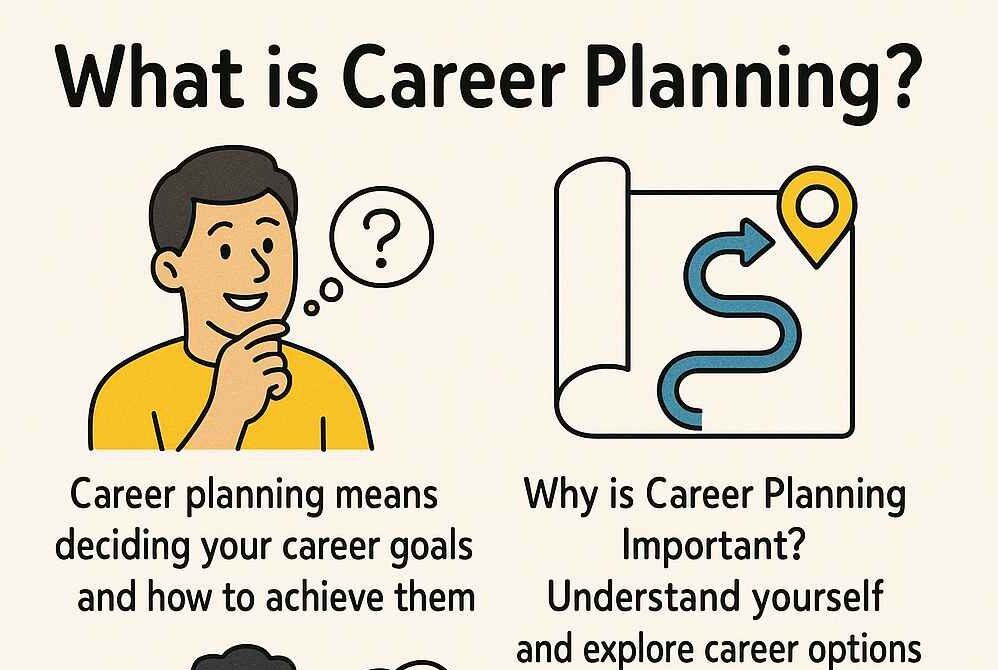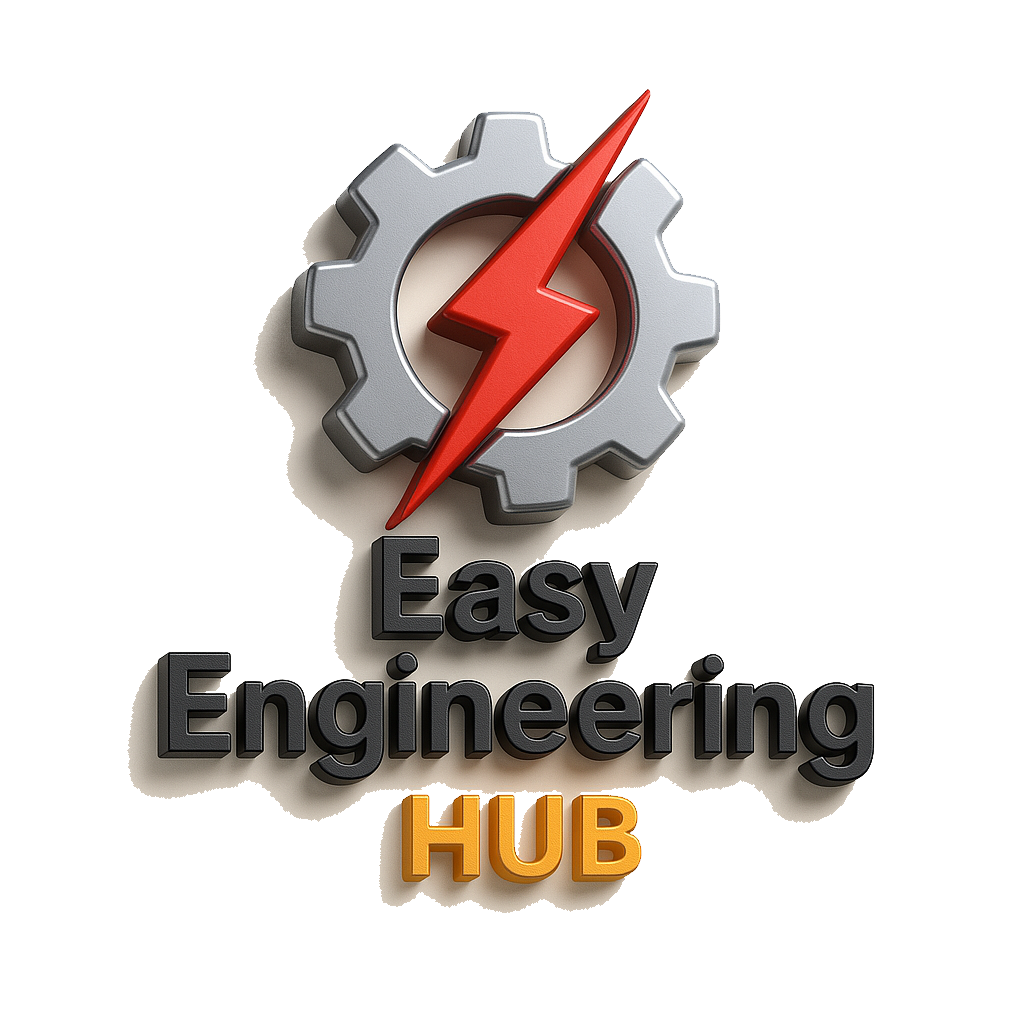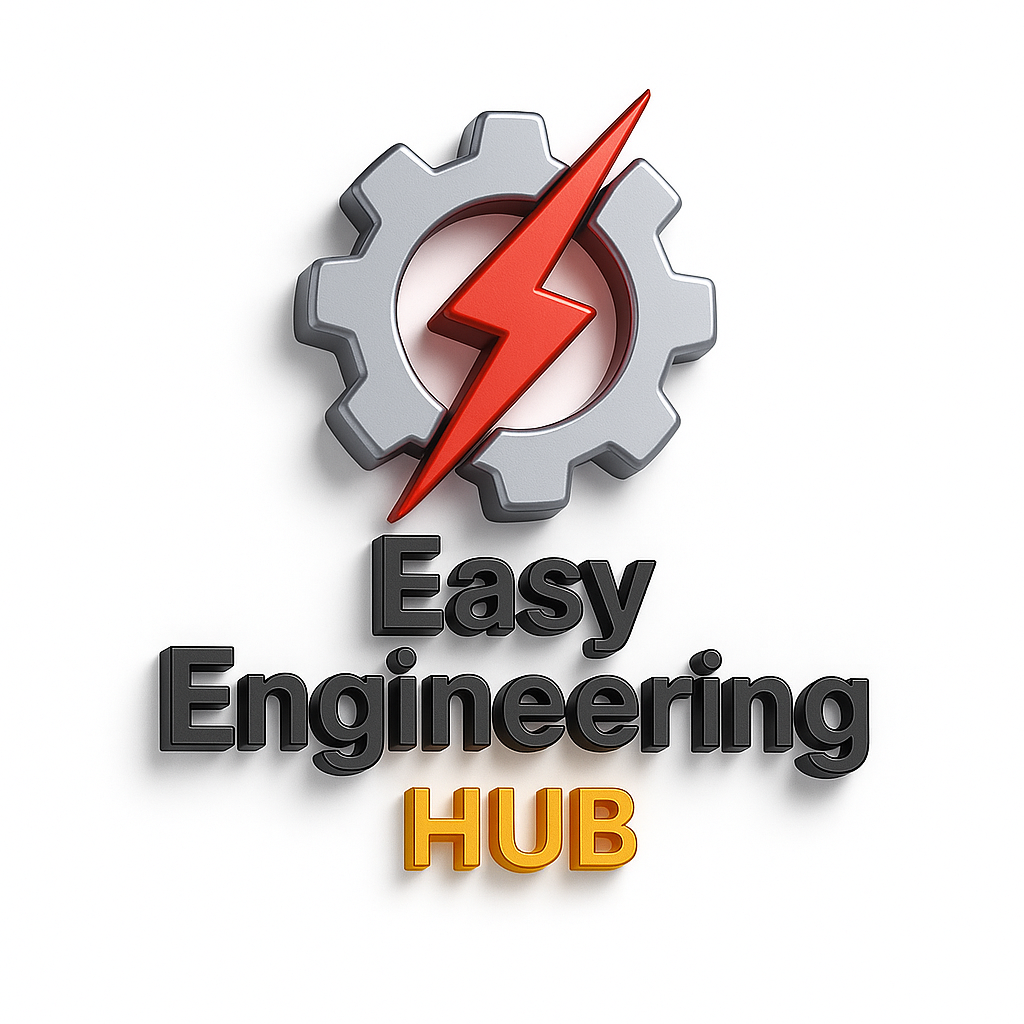Career Planning means thinking about your future job or profession and figuring out the steps you need to take to reach your goals. It’s like creating a roadmap for your life—deciding where you want to go, what you want to become, and how to get there.

Why is Career Planning Important?
- It helps you understand yourself better (your strengths, interests, and values).
- It gives you direction in life so you’re not just going with the flow.
- You can make smarter decisions about your education, skills, and job choices.
- You avoid wasting time on paths that don’t suit you.
Steps in Career Planning
1. Self-Assessment
Before choosing a career, you need to know who you are.
- What are your interests? (Do you like working with people, numbers, machines?)
- What are your strengths? (Are you creative, logical, good at communication?)
- What are your values? (Do you want job security, high salary, helping others?)
Tools like personality tests (e.g., MBTI, career quizzes) can help.
2. Explore Career Options
Once you understand yourself, look for career options that match your skills and interests.
- Research different jobs, industries, and what they involve.
- Learn about job duties, salaries, work environment, and future demand.
- Talk to professionals, teachers, or career counselors.
Example: If you love science and helping people, you might explore careers in healthcare, like becoming a doctor, nurse, or medical researcher.
List of professions from various fields
3. Set Career Goals
Now it’s time to decide what you want.
- Set short-term goals (e.g., finish high school, get an internship).
- Set long-term goals (e.g., become a software engineer, start your own business).
Make your goals SMART – Specific, Measurable, Achievable, Relevant, Time-bound.
4. Make a Career Plan
A plan is the step-by-step path you follow to reach your career goals.
- Choose the right education or training (like college, diploma, or online courses).
- Develop the skills needed for your dream job (technical, communication, teamwork).
- Gain experience through internships, volunteering, or part-time jobs.
Example: To become a teacher, you’ll need a degree in education, learn teaching skills, and maybe volunteer at schools.
5. Take Action
Start working on your plan:
- Study hard.
- Apply for internships or training.
- Learn new things every day.
- Build a resume, attend workshops, and stay updated in your field.
Taking action turns dreams into reality.
What is Career Development?
Career Development is the process of growing and improving in your chosen career over time.
Even after you start working, you can keep learning and moving forward.
It Includes:
- Getting promotions or higher positions.
- Learning new skills and getting more experience.
- Changing careers if needed.
- Setting new goals as you grow.
Career Planning and Development
- Start Early – The sooner you think about your future, the better.
- Be Flexible – Your interests or goals might change, and that’s okay.
- Keep Learning – Education doesn’t stop after school; always update your skills.
- Ask for Help – Talk to teachers, parents, mentors, or career counselors.
- Believe in Yourself – Confidence and effort go a long way.
Summary:
Career planning and development is the process of understanding yourself, exploring career options, setting goals, and creating a path to achieve them. It starts with self-assessment—knowing your interests, strengths, and values—followed by researching jobs that match your personality. After that, you set short- and long-term goals, make a plan to gain education and skills, and take action toward your dreams. Career development continues even after you start working, as you grow, learn, and move up in your field. With the right planning, effort, and a little guidance, you can build a successful and satisfying career.
Tags: career action plan, career adaptability, career advancement, career advancement opportunities, career aspirations.Career strategy, career assessments, career challenges, career change, career choices, career coaching, career coaching programs, career counselors, career decision-making, career development, career direction, career exploration, career exploration tools, career flexibility, career goals, career goals alignment, career growth, career mapping, career milestones, career objectives, career opportunities, career options, career path, Career Planning, career planning tools, career potential, career progress, career quizzes, career research, career resilience, career resources, career satisfaction, career success, career support, career trajectory, career trajectory mapping, career transition, career vision, career-focused education, career-related training, communication skills, continuous learning, Decision Making, Education, education pathway, education planning, experience, future planning, goal achievement, goal-setting framework, industry knowledge, industry research, industry trends, interests, internship opportunities, internships, job duties, job fulfillment, job market, job market trends, job opportunities, job paths, job performance, job profession, job progression, job promotions, job readiness, job satisfaction, job search strategy, job security, job-specific expertise, Leadership Skills, long-term goals, mentor guidance, mentorship, networking opportunities, new goals, part-time jobs, performance reviews, personal development, personal growth, personal strengths, personality tests, professional connections, Professional Development, professional growth, professional network, professional skills, roadmap, role clarity, salaries, self-assessment, self-confidence, self-improvement, short-term goals, Skill development, skill enhancement, skill-building, skills, SMART goals, strengths, talent development, teamwork, technical skills, training programs, transferable skills, values, vocational training, volunteering, work environment, work experience, work-life balance, work-related certifications, workplace development, workplace skills


